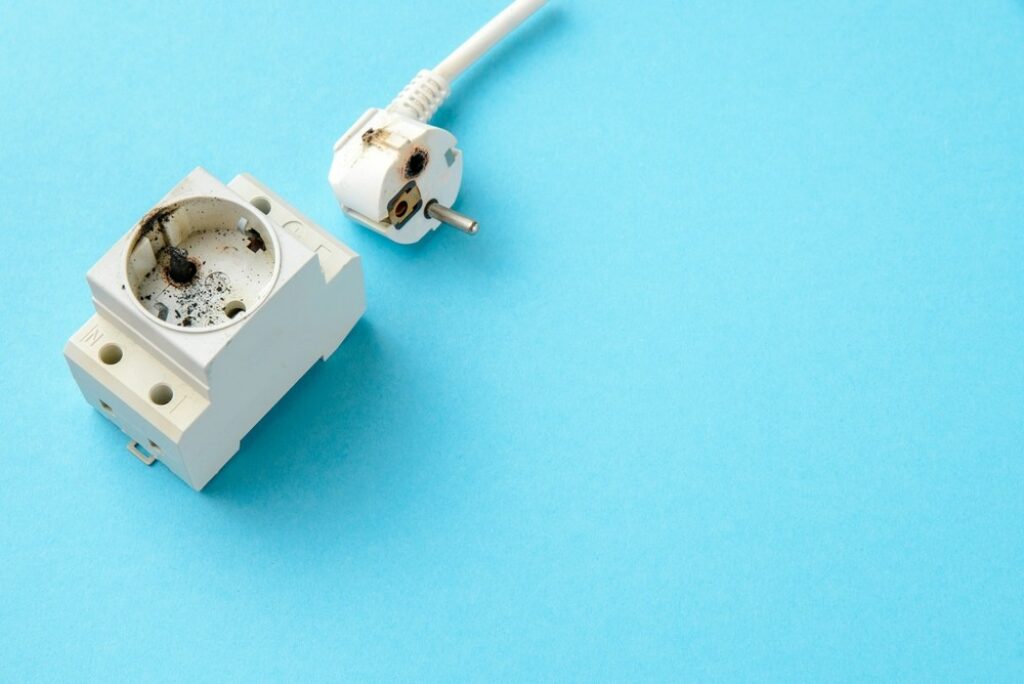
Common Electricity Malfunctions That Can Damage Your House
Your house is made up of much more than just the building itself. A house also has various forms of infrastructure to allow it to be a functioning and safe home. These include things like plumbing, heating, cooling and electricity. While they are all important, electricity can also pose a danger.
Related Topics (Sponsored Ads):
Electricity is an essential part of our daily lives, powering lights, various devices and appliances. However, electrical malfunctions can occur, posing serious risks to both property and personal safety. In this article, we will explore some common electricity malfunctions that can damage your house. Understanding these issues will help you identify potential problems, take preventive measures, and ensure the safety of your home.

Electrical Overloading
An electrical overload happens when there is an excessive demand for electricity on a given circuit. It happens when you connect too many devices or appliances to a single electrical circuit, exceeding its capacity. Overloading can lead to overheating, tripped circuit breakers, and even electrical fires. To prevent this, ensure that your electrical usage is evenly distributed across different circuits and avoid plugging too many high-power devices into a single outlet or power strip.
Short Circuits
A short circuit occurs when a live wire comes into contact with a neutral wire or a ground, creating a path of low resistance. This results in a sudden surge of electrical current, leading to overheating, melting of wires, potential fires, plus damage to appliances, switches, and outlets. Short circuits can be caused by damaged insulation, faulty wiring, or exposed wires. If you notice flickering lights, tripped circuit breakers, or a burning smell, it could indicate a short circuit. It is crucial to address this issue promptly by contacting a qualified electrician.
Electrical Surges
A power surge is a sudden increase in voltage that exceeds the standard flow of electricity in a circuit. Power surges can result from lightning strikes, utility grid issues, or when large appliances with motors turn on and off. Although they are usually brief, these surges can damage sensitive electronics, such as computers, televisions, and home automation systems. They can also shorten the lifespan of your electronics and appliances, leading to costly replacements. Installing surge protectors at key outlets and using surge-protected power strips can help safeguard your devices from these damaging surges.
Faulty Wiring
Faulty wiring is a significant cause of electrical malfunctions and can pose severe risks to your house. Houses with outdated or deteriorating wiring systems are prone to electrical malfunctions. Outdated or deteriorating wiring can lead to electrical shocks, fires, and damage to your appliances. Signs of faulty wiring include flickering lights, frequently tripped circuit breakers, and outlets that are warm to the touch. If you suspect faulty wiring, it is crucial to consult a licensed electrician to assess and repair the wiring in your home. Even if there are no signs of trouble, if your house has outdated wiring, consider hiring a professional electrician to inspect and upgrade the electrical system to meet modern safety standards.
Ground Faults
These occur when a live wire comes into contact with a conductive surface, such as water or metal. This can happen due to damaged appliances, faulty wiring, or inadequate grounding. Ground faults can result in electrical shocks, damage to appliances, and even electrocution risks. Installing ground fault circuit interrupters (GFCIs) in areas with water, such as kitchens and bathrooms, can provide added protection against ground faults. Having proper grounding and the regular inspection of appliances can also help mitigate these risks.
Poor Maintenance and Aging Infrastructure
Poor maintenance and aging electrical infrastructure can lead to various malfunctions and damage within your house. Worn-out outlets, loose connections, and outdated electrical panels can increase the risk of electrical fires and other hazards. Additionally, ignoring warning signs like flickering lights, frequently tripping breakers, or burning smells can lead to more severe electrical issues over time. Regular inspections by a qualified electrician, upgrading old wiring systems, and replacing outdated electrical components are essential preventive measures to ensure the safety of your family and property and longevity of your electrical system.
Conclusion
Electrical malfunctions pose significant risks to your house, including property damage and threats to human life. Understanding common faults such as electrical overloads, short circuits, power surges, ground faults, outdated wiring, and poor electrical maintenance is crucial for maintaining a safe electrical system and a safe home. By understanding these issues and taking necessary precautions and conducting regular inspections, you can protect your house from potential electrical damage and ensure the safety of your home and family.
Always consult a licensed electrician for any electrical issues or concerns to ensure professional assistance and compliance with safety standards. Never attempt to fix or alter the electrical system yourself, as that can result in serious damage, injury or even death.




